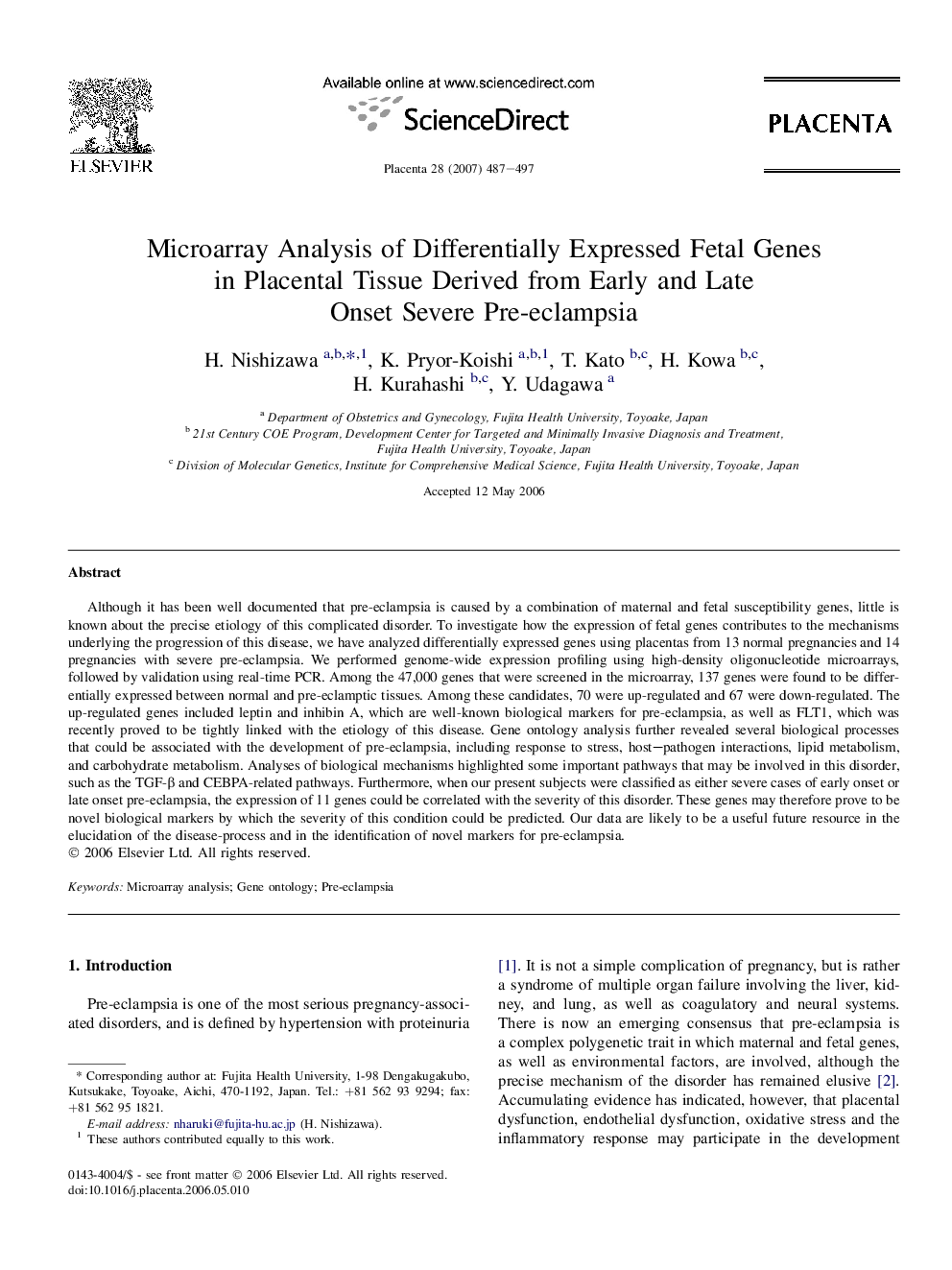| Article ID | Journal | Published Year | Pages | File Type |
|---|---|---|---|---|
| 2790017 | Placenta | 2007 | 11 Pages |
Although it has been well documented that pre-eclampsia is caused by a combination of maternal and fetal susceptibility genes, little is known about the precise etiology of this complicated disorder. To investigate how the expression of fetal genes contributes to the mechanisms underlying the progression of this disease, we have analyzed differentially expressed genes using placentas from 13 normal pregnancies and 14 pregnancies with severe pre-eclampsia. We performed genome-wide expression profiling using high-density oligonucleotide microarrays, followed by validation using real-time PCR. Among the 47,000 genes that were screened in the microarray, 137 genes were found to be differentially expressed between normal and pre-eclamptic tissues. Among these candidates, 70 were up-regulated and 67 were down-regulated. The up-regulated genes included leptin and inhibin A, which are well-known biological markers for pre-eclampsia, as well as FLT1, which was recently proved to be tightly linked with the etiology of this disease. Gene ontology analysis further revealed several biological processes that could be associated with the development of pre-eclampsia, including response to stress, host–pathogen interactions, lipid metabolism, and carbohydrate metabolism. Analyses of biological mechanisms highlighted some important pathways that may be involved in this disorder, such as the TGF-β and CEBPA-related pathways. Furthermore, when our present subjects were classified as either severe cases of early onset or late onset pre-eclampsia, the expression of 11 genes could be correlated with the severity of this disorder. These genes may therefore prove to be novel biological markers by which the severity of this condition could be predicted. Our data are likely to be a useful future resource in the elucidation of the disease-process and in the identification of novel markers for pre-eclampsia.
